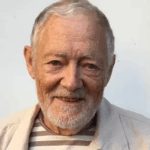The words we use to describe concepts influence how we perceive them. When discussing death, we often employ euphemisms—phrases like "passing away," "embarking on a final journey," or "going the way of all flesh." Such language softens the harsh realities of mortality.
The euphemistic approach also applies to euthanasia and assisted dying. The very word "euthanasia" comes from the Greek meaning "good death", and in general euphemistic language is a hallmark of discussions on assisted dying. For example, an article in The Brussels Times described the euthanasia of a patient with a serious neurological disease as "a serene departure," referring to it as Le grand jour.
The historical term "life unworthy of life" continues to echo in modern times, where thoughts about whether life is worthy and concepts such as dignity and individual rights, prevail in the debate. Currently, in Western countries, arguments for legalizing assisted dying invariably refer to the right to self-determination or autonomy, and free will.
Our right to self-determination in this context seems inviolable. Autonomy in relation to assisted dying is often viewed in the same way as our fundamental right to choose our own course in life. If we are able to control our lives, then surely, we can also control our death, the argument goes.
Responses in opinion polls on assisted dying usually tend to result in a majority in favour of it. I am sure that this is explained by the fact that healthy people can scarcely imagine that they should not be able to make up their own minds under any circumstances. Thus, they cannot see themselves in situations where they do not decide freely or where they simply might not wish to be given the choice of assisted dying.
Final decision in life
One inherent problem with autonomy in connection with assisted dying is however that a person who uses his or her presumed right to self-determination to choose death definitively precludes himself or herself from deciding or choosing anything. Where death is concerned, your right to self- determination can only be exercised by disposing of it for good.
And those around must respect the right to self-determination. The respect refers to a person who is respected, but this is precisely the person who disappears.
I may quote the Danish philosopher, J. Sløk, who supported legalization but still thought that the choice of one’s own death was not a real choice of something else.
He said: “The actual concept of death has no content, for death is the same as nothing, and one cannot choose between life and nothing. Rather, therefore, one must speak of opting out; one opts out of life, without thereby choosing anything else. Death is not ‘something other’ than life; it is the cessation or annihilation of life.”
But maintaining that it is a choice, it is still dubious whether self-determination is genuinely possible when it comes to your own death. It seems to be forgotten that all essential decisions that we make are made in relation to other people. Our decisions are affected by other people, and they affect other people. All of us are vulnerable and dependent on others.
Indeed, decisions about your own death are not made in a normal day-to-day context. A request for euthanasia is made against a backdrop of desperation, a feeling of hopelessness and probably a feeling of being superfluous. Such a situation is a fragile basis for autonomy and for decision making. The choice regarding your own death is therefore completely different from most other choices usually associated with the concept of autonomy.
From option to duty
With legalization of euthanasia or assisted dying, the very possibility of it inhabits everyone’s consciousness – the patient’s, the doctor’s, the relatives’, and the care staff’s – even if not formulated as an out-and-out offer. And if a law on assisted dying gives the patient a right to die, that right may turn into a duty to die.
To illustrate, the American Oregon Public Health Division reports show that in 1998 (when the law was introduced), 12 percent of patients in hospitals and care homes reported fearing being a burden on their relatives. The figure rose in the course of the years and was 48 percent in 2022. This boils down to the question of how autonomously the weakest people can act when the world around them deems their ill, dependent, and pained quality of life as beyond recovery?
Pressure on a patient does not even have to be direct or articulated. As pointed out by the US Professor of Biomedical Ethics, Daniel Sulmasy, it may exist as an “internalized external pressure.” Likewise, the French bioethicist Emmanuel Hirsch states that individual autonomy can be an illusion:
“A patient may truly want to die, but this desire is not the fruit of his freedom alone, it may be – and most often is – the translation of the attitude of those around him, if not of society as a whole which no longer believes in the value of his life and signals this to him in all sorts of ways. Here we have a supreme paradox: someone is cast out of the land of the living and then thinks that he, personally, wants to die.”
External assessment required
Moreover, a choice of euthanasia or assisted dying will always include an external assessment of your quality of life. This is to say that autonomy is not the only factor or even always the key factor when deciding whether the death can be granted because it is not only the patient’s own evaluation that is crucial. The value of the patient’s life must also be assessed as sufficiently low by someone else. This demonstrates the limitation of the patient’s self-determination.
It stands to reason that relieving suffering is a duty, but this effectively shifts the focus from the autonomy claimed. According to prevailing ideas about autonomy, patients initially evaluate their quality of life themselves, but ultimately it is those around them who end up gauging that quality and the value of their life.
That is to say, the justification for assisted dying, borne on the premise that certain lives are not worth living, is not only the presence of a personal request. The whole point is that in the process, respect for the right to self- determination becomes relative.
If a competent and legally capable person must have the option of voluntarily choosing assisted dying in the event of unbearable suffering, why does suffering have to be a requirement? The answer is straightforward: our concepts of assisted dying imply that compassion must form a crucial aspect of the decision – mercy killing and compassionate killing are synonyms.
But this leads instantly to the question of why we should not also perform assisted dying on people who are not in a position to ask for it themselves but are also suffering. And truly, even with strict regulations based on autonomy and voluntariness, the development in some countries that have legalized assisted death shows that non-competent groups of patients are gradually being included.
Non-neutral language
In discussions of euthanasia, language is not neutral, as mentioned in the beginning. The words we use influence perceptions, shape policies, and, ultimately, determine life-and-death decisions. A critical examination of the rhetoric surrounding euthanasia is not just a matter of semantics—it is a matter of moral clarity.
The concept of autonomy is connected with positive ideas today. However, the Canadian sociologist Ashley Frawley, argues with this by saying: "Far from empowering individuals, euthanasia laws normalize a framework in which life-ending decisions are made under the control of state apparatus, not as acts of personal freedom but as procedural mandates devoid of moral depth."
In Denmark euthanasia and assisted dying is not legal but the debate is currently heated. Advocates of legalization deftly lean on the arguments of autonomy and free will. These arguments seem to be convincing and may carry the day. However, autonomy and choice may be seen as concepts that are themselves modern euphemisms.
"It is highly suspicious that we suddenly and uniquely believe in the autonomy of those groups that, in darker times, were seen as intolerable ‘burdens’ to society," Frawley wrote in a recent op-ed.
Thus, the euphemistic use of the concepts of free will, self-determination, and autonomy may cloak what could be at play - that some lives are viewed as dispensable and may also cover up other motives for example cost-saving measures.
In this debate I repeatedly encourage the idea that fellow human beings such as a relative and a doctor shall not take death as the starting point but stay “on the side of life”, which is where the patient (still) is. A patient overwhelmed by suffering may be more in need of compassion, care, and love than of someone kindly offering to help end his or her life. It is not a question whether people have a right to say that they do not want to live any longer. It is a question whether they have a right to be believed when saying it.


